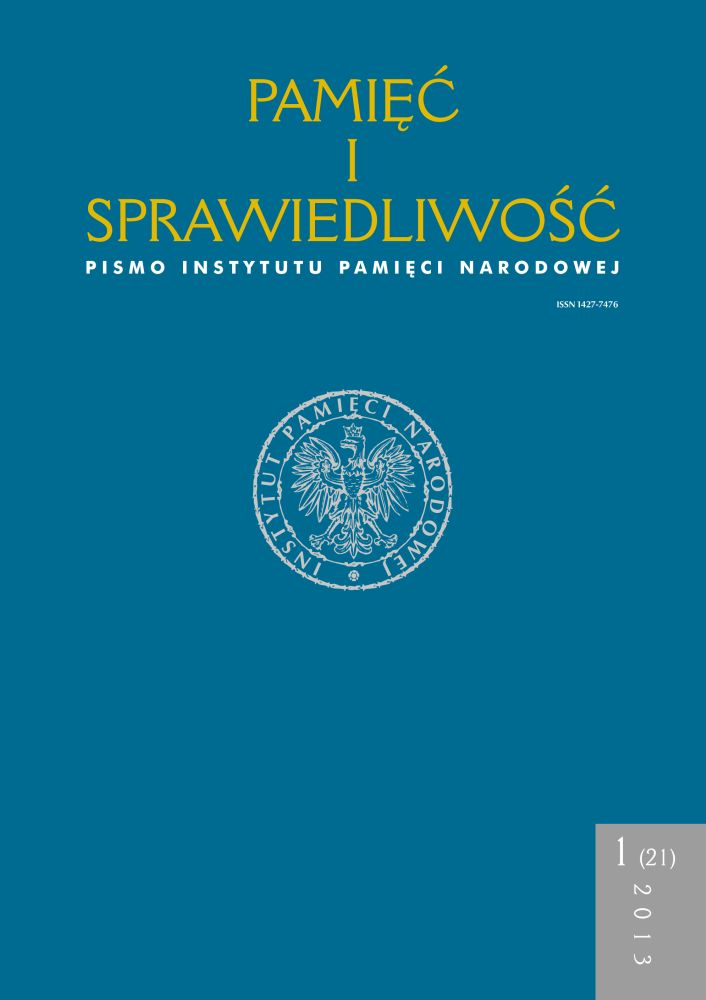Codzienność początków okupacji niemieckiej w Generalnym Gubernatorstwie w świetle ogłoszeń drobnych „Gońca Krakowskiego” (październik 1939 – czerwiec 1940)
Everyday life at the beginning of the German occupation in the General Government in the light of small ads published in “Goniec Krakowski” (October 1939 – June 1940)
Author(s): Sebastian PiątkowskiSubject(s): History, Social Sciences, Media studies, Communication studies, Recent History (1900 till today), WW II and following years (1940 - 1949)
Published by: Instytut Pamięci Narodowej
Keywords: German occupation in the General Government; “Goniec Krakowski”
Summary/Abstract: „Goniec Krakowski” was one of the most important daily newspapers published by the Germans in the years 1939–1945 in the General Government. Several factors determined its dominant position as compared to other titles: 6 editions during the week, a 60 thousand average issue, the volume amounting to 10 pages in holiday editions, a low price and efficient distribution. Apart from contents of clearly propaganda value, presenting the success of the Reich and its allies in warfare and international politics, as well as local news selected and presented from a certain perspective, advertisements and small ads played an important role in the newspaper. They were included in each edition, divided into 9 units: “Missing persons”, “Vacancies offered”, “Searching for vacancies”, “Buy”, “Sell”, “Premises”, “Science and education”, “Singles ads” and “Miscellaneous”. In the period between October 1939 and June 1940, readers received 201 consecutive editions of “Goniec Krakowski”, including a total of 42 157 small ads. The number was very high and the contents of advertisements provide a valuable material to find out about the reality of life of the Polish nation under occupation. The first phenomenon reflected in the ads was the desire to renew contacts with close persons interrupted by warfare. Many people tried to find informationabout missing soldiers of the Polish Army and civilians lost during evacuation. The second phenomenon is high unemployment, which mainly affected the intelligentsia and people displaced from the territory of Poland included in the Reich. Frequently, the authors of the ads declared their readiness to take up any work for a minimum wage. The scale of general poverty is also reflected in advertisements offering the sale of everyday objects and the requests of extremely poor people asking for clothes and shoes. Many people tried to gain additional income by renting out flats, rooms or offering private lessons. On the other hand, it may be observed that affluent persons tried to invest money (which was subject to regular inflation) in real property, gold and jewelry. The advertisements also included numerousmatrimonial ads. Very few of those publishing such ads in the papers underlined the role of feelings, concentrating on the desire to find a partner with sufficient wealth, social position and regular income.
Journal: Pamięć i Sprawiedliwość.
- Issue Year: 21/2013
- Issue No: 1
- Page Range: 23-49
- Page Count: 27
- Language: Polish

